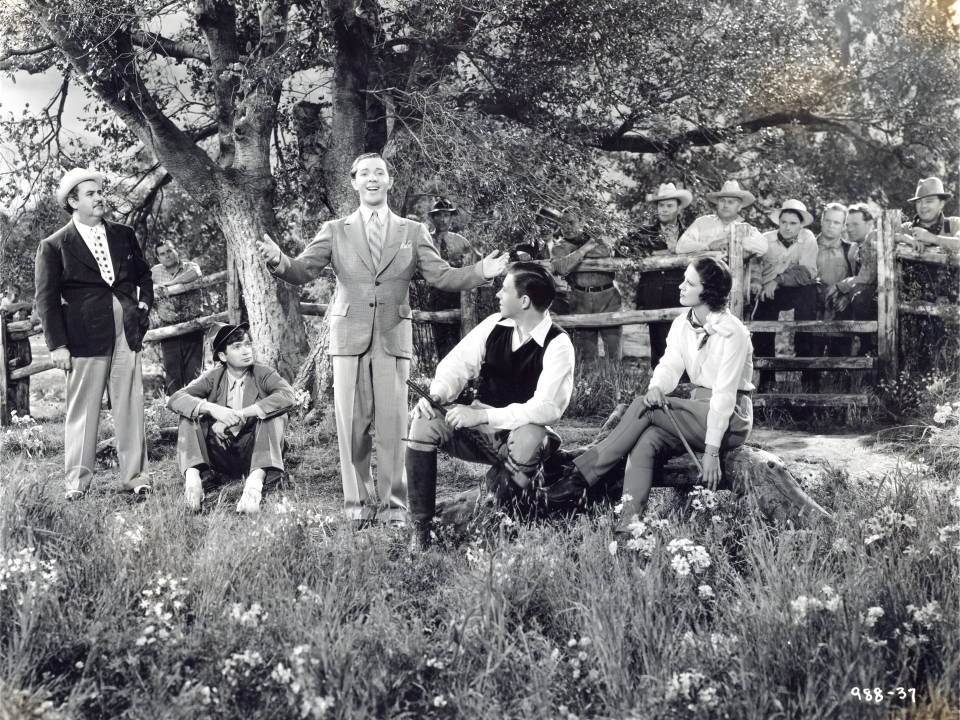Since 1993, the Igor Gorin Memorial Award has been given annually to an exceptional emerging opera singer in the United States and has ensured that Gorin’s legacy lives on.
Melody from East to West
The largest scholarship for emerging opera singers in the United States resides here in Tucson, where more than $370,000 has been given to emerging opera singers
since 1993. The award honors the legacy of Igor Gorin, an international opera star who fled oppression in his home country to find success in the United States and Tucson.
Born in 1904 in Grodek, a small village in southern Ukraine, Gorin discovered a love of music at an early age singing in the children’s choir at his local synagogue. The son of a Rabbi, his talent would take him to synagogues throughout Europe and his passion for the faith would lead him to become a Cantor at his local synagogue.
His love of music led him to the Vienna Conservatory of Music. It was here that he was first exposed to philanthropy through a scholarship awarded to him by a member of the Rothschild banking family as a result of his hard work and demonstrated talent. Against all odds, and through the support of people who believed in his gifts, he graduated from the conservatory in 1930. Three years later, Gorin was invited to sing during the High Holy Days in the United States by a Rabbi in Rochester, New York that had heard of his talent.
Gorin flourished in the United States and was quickly noticed by the radio talent of the day including Rudy Vallee and Eddie Cantor. He quickly went from singing on a ten-week contract at Radio City Music Hall to performing on several national radio programs including the Bell Telephone Hour, RCA Victor Hour, the MGM sponsored Good News, Firestone Hour, and Hollywood Hotel. Gorin also began touring Opera Houses in the country, performing throughout the United States as well as most provinces in Canada to audiences of thousands.
Gorin wrote and published dozens of love-themed songs and often performed them at concerts as well as through broadcast. Although he became well known for his stage presence and dramatic artistry on the operatic stage, he never allowed himself to become distanced from philanthropy. He often lent his vocals to charitable causes to assist organizations with fundraising and to various war relief efforts.
Gorin made several personal performances for American troops and through the Armed Forces Radio during World War II. He won many awards for his efforts, but the recognition was not as important as knowing he was doing all he could do. His family had been caught in Europe by the Nazis and were in a concentration camp.
Gorin’s second career, that of a teacher, began in 1966 after decades of successful performances and tours throughout the United States, Europe, South America, Australia, and New Zealand.
The University of Arizona President, Dr. Richard Harvill, took a chance on Gorin, who had no formal training as a teacher and offered him a position as Professor of Music at the University of Arizona. Gorin found joy in his ability to nurture young students and develop their talents through skillful instruction and inspiration. He gained the love, admiration, and respect of his pupils and colleagues, many of whom were able to enjoy his annual recitals up until his final vocal performance on the University’s campus in 1978. Sadly, Gorin’s health began to deteriorate in the early 1980s, and he succumbed to cancer in 1982.
Gorin was survived by Mary, his beloved wife, who played a pivotal role in his career as a business manager and public relations officer. To honor his dedication to the next generation of opera singers, Mary Gorin established the Igor Gorin Memorial Award

